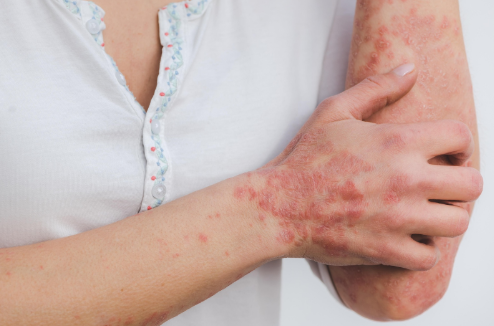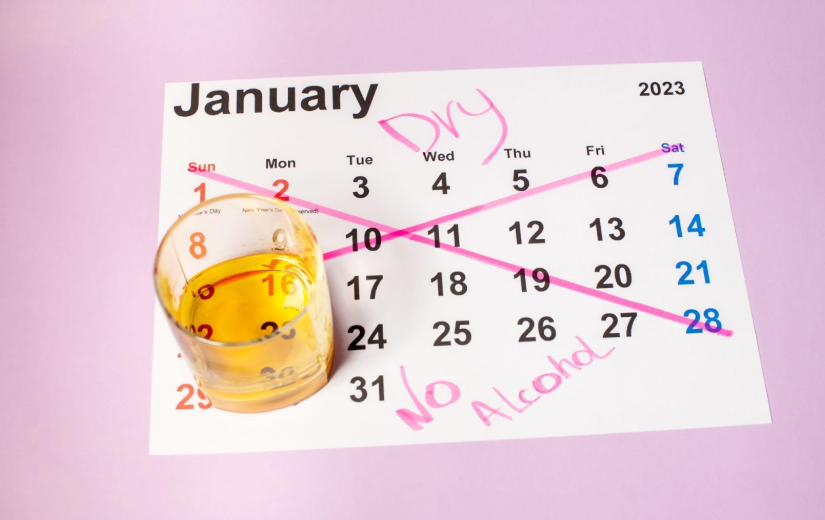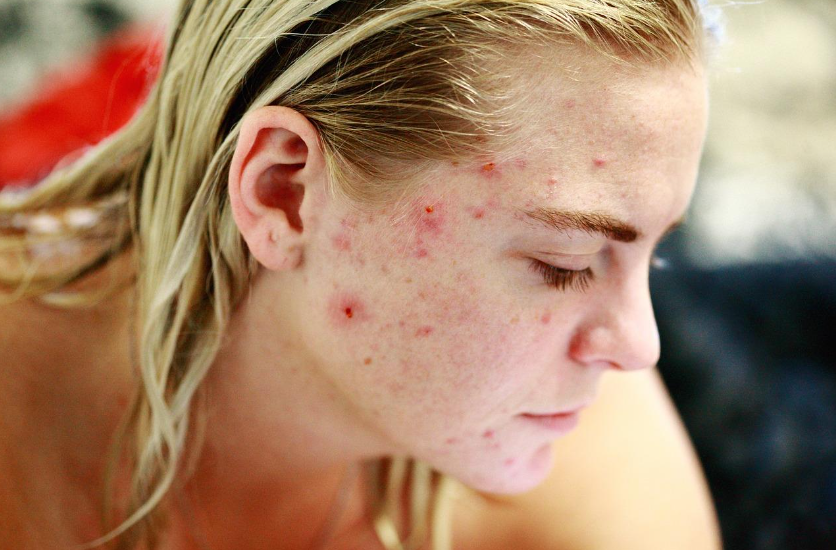Psoriasis Under Control
Dr. Eugene Conte • July 28, 2017
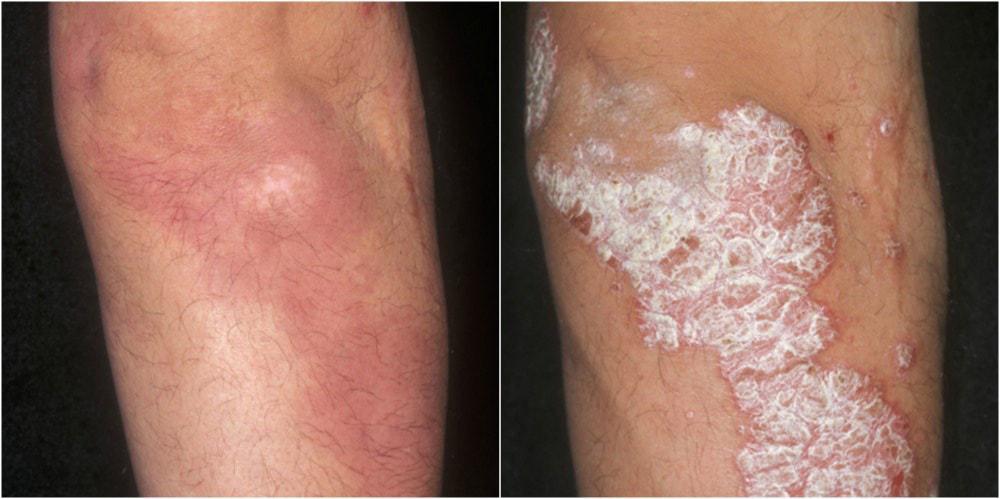
Quick Facts about Psoriasis:
- Psoriasis most often develops in individuals aged 15-35 years old.
- It is estimated that somewhere between $51 billion and $63 billion a year is spent on treatments associated with psoriasis.
- 23%-35% of people who have psoriasis are not receiving treatment.
- 52% of people with the disease are dissatisfied with their treatment.
- 30%-50% of individuals who have psoriasis will eventually develop psoriatic arthritis.
- 80% of sufferers have a mild to moderate case of the disease.
- Individuals with psoriasis should spend no more than 10 minutes in a hot shower. Any longer will most likely increase the irritation and dryness experienced.
- People with psoriasis should eat fish or other foods high in omega-3 fatty acids at least 2 times a week to help reduce their inflammation
Focusing on Psoriasis Triggers:
Skin Injuries:
you may have noticed that your psoriasis has flared up in areas where you have a cut, scratch, or rough sunburn. This is known as the Koebner phenomenon and it is the tendency that the disease has for flaring up over injured skin, however mild it may be. The immune cells that cause psoriasis are traveling around in your blood, and when your skin is scratched or injured, it causes the blood vessels to stop the immune cells that are circulating. This results in psoriasis flare-ups near damaged skin, forming thick plaques.
Infections:
as mentioned previously, psoriasis is caused by immune cells in the blood, so it is not surprising that falling victim to infections can cause flare-ups. Infections such as strep, bronchitis, and tonsillitis can trigger flares. Curiously, strep throat can cause guttate psoriaisis, which is a form of the condition that causes red bumps to flare up on the skin.
Stress:
not surprisingly, stress can cause flares in your condition as well. Stress tends to cause many conditions to worsen, not just that of psoriasis. Nearly 75% of people with psoriasis attribute stress as one of the factors that worsens their plaques. Your immune system responds to stress by releasing chemicals that cause your inflammation to become triggered. Another factor that can be associated with stress, is that individuals under stress sometimes quit taking their medications. This can be the cause of neglect, or being so stressed that they simply forget to take the medication for a period of time.
Medications:
a myriad of medications take for other conditions can in fact worsen your psoriasis condition. Such known drug triggers include lithium, propranolol and other beta-blockers, the NSAID indomethacin, and anti-malarial medicines like hydroxychloroquine. It is not recommended that you quit taking your necessary medications. A dermatologist can manage your flares with psoriasis medications/therapies that won’t interfere with your other medications.
Alcohol & Cigarettes:
this two habits catalyze many conditions, not just psoriasis, but if you have psoriasis you should consider giving up these two habits. Not only do they trigger flares, but they can make the condition even harder to treat. For individuals with palmoplantar psoriasis- which is an especially disabling form of psoriasis- most currently smoke or were smokers in the past. As for alcohol, most medications used to treat psoriasis are rendered useless when they interact with alcohol.
If you have any further questions regarding psoriasis, or you are in need of a dermatologist that is an expert in this disease, please do not hesitate to reach out to one of our providers. If you have any scheduling conflicts and are unable to schedule a visit, please visit our website and conduct an online visitation. You can also begin by clicking the link below.
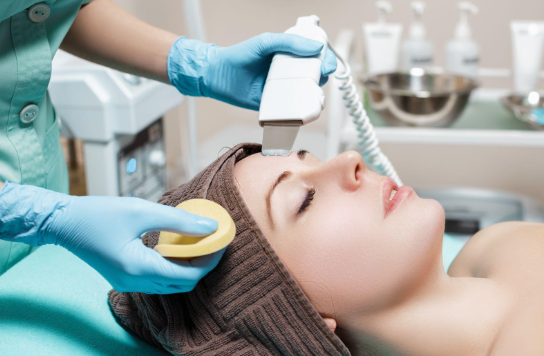
Your skin, the body's largest organ, is a vital indicator of your overall health. Changes in its appearance can signal underlying medical conditions that may require attention. Whether it’s ensuring you’re getting the right nutrients, managing stress, or seeking professional care, being attuned to what your skin tells you makes it easier to stay on top of your health.
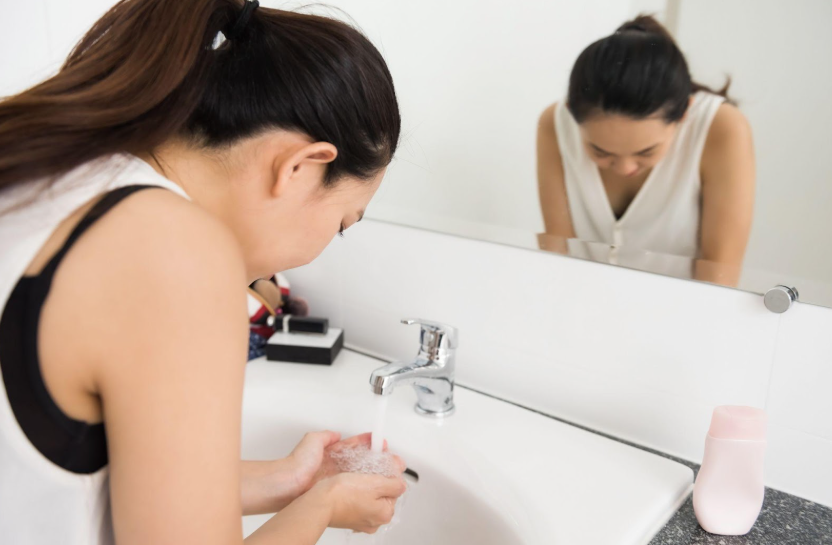
Achieving healthy, glowing skin begins with an effective cleansing routine. However, small mistakes can disrupt your skin’s natural balance, leading to irritation, breakouts, or premature aging. Avoiding these common errors and incorporating advanced techniques can significantly impact your skincare journey.

You’ve likely felt it in your life: that uncomfortable feeling of tightness, flakiness, and sometimes even itchiness that can make your skin look and feel less than its best. But what exactly causes dry skin, and how do you treat it? Don’t fret because we’ve put together some treatment tips that can help your dry skin regain its moisture.

